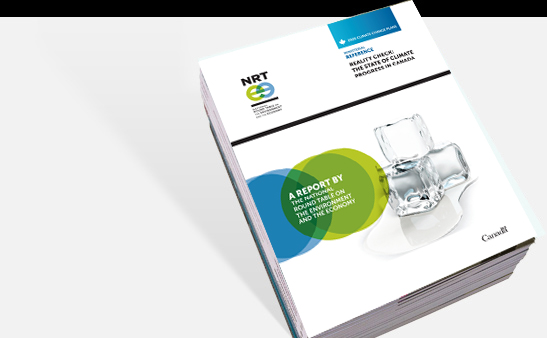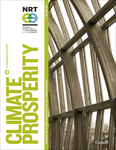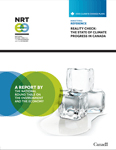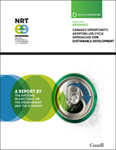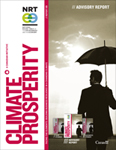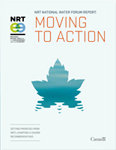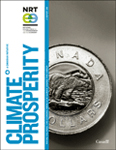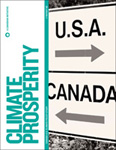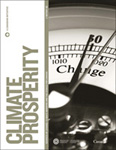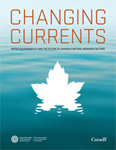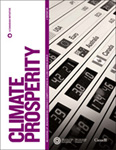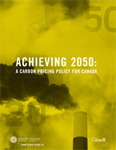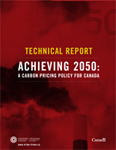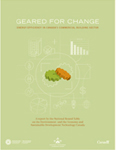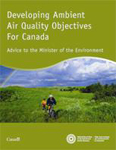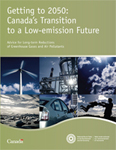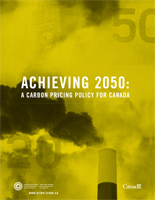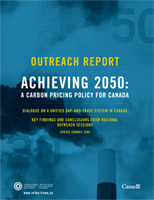Achieving 2050: A Carbon Pricing Policy for Canada – Advise
Our report, Achieving 2050, was released on April 16, 2009. It recommends a unified carbon pricing policy for Canada—a policy aimed at meeting one clear objective: achieving the greatest amount of carbon emission reductions, at the least economic cost. The report sets out a comprehensive road map for establishing a national cap-and-trade system in a phased manner, with adequate transition for industry and consumers. It lists guiding principles for a Canadian carbon pricing policy. The NRT’s carbon pricing roadmap is reasonable and realistic to meet Canada’s emission reduction targets.

|
April 16, 2009: The National Round Table advised the federal government to move quickly to implement a unified national carbon pricing policy across Canada in order to meet the federal government’s greenhouse gases (GHG) targets for 2020 and 2050. Achieving 2050: A Carbon Pricing Policy for Canada sets out a comprehensive road-map for establishing a national cap-and-trade system in a phased manner, with adequate transition for industry and consumers, to allow Canada to achieve its environmental goals at the least economic cost. News Conference[jwplayer mediaid=”12249″]Report Highlights
|
Achieving 2050 – Advisory Report Achieving 2050 – Technical Report Achieving 2050 – Outreach Report
|




